Why Indians Check Kundli Before Marriage!
Ankita Rai | Thu, 22 May 2025
In India, where marriage intertwines family, culture, and tradition, Kundli matching remains a valued ritual even in 2025. Far from mere superstition, it blends astrological insights with emotional and practical considerations—offering reassurance, psychological comfort, and spiritual alignment. While rooted in Vedic beliefs, today’s approach to horoscope matching is more balanced, often used as a guide rather than a rule. For many, it’s a cultural compass that bridges ancient wisdom with modern uncertainty. Whether symbolic or sincere, Kundli matching continues to shape marriage decisions by honoring both love and legacy.
Marriage
( Image credit : Pexels )
In a nation where marriages are not only a coming together of two individuals but a union of families, communities, and even castes at times, it is not surprising that India brings both an emotional and calculated approach to marriage. Among all the customs deeply rooted in Indian tradition, one practice still holds its ground—Kundli matching, or horoscope matching. But why do Indians continue to refer to Kundlis before marriage in 2025? Is it mere superstition, or is there a logical rationale embedded in this ancient ritual? Let’s explore the layers involved in this astrological process and understand its cultural, psychological, and even spiritual relevance.
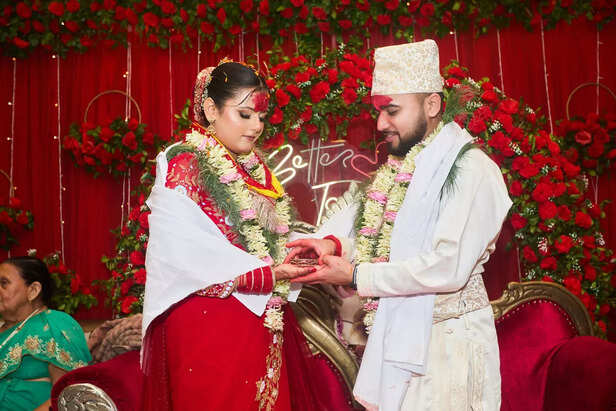
A Kundli (or Janam Kundli) is a birth chart drawn from the date, time, and place of birth. It charts the positions of celestial bodies at the time of birth, which are believed to influence personality, life path, and compatibility. In the context of marriage, Kundli matching—traditionally called Guna Milan—is based on the Ashtakoota system. This system assigns a total of 36 points to assess compatibility across eight dimensions, including mental harmony, physical alignment, health, and longevity of the marriage. The closer a couple gets to the maximum score of 36, the higher their compatibility is deemed. While this framework may seem strict, many families treat it more as a guiding tool than a final verdict.
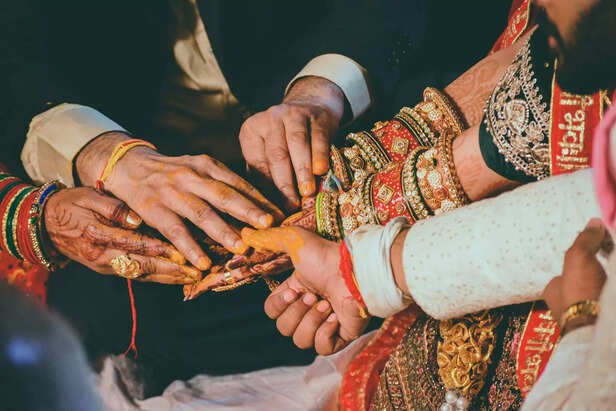
Marriage in Indian culture often extends beyond the bride and groom. It’s a binding of families, traditions, and expectations. Kundli matching is seen as a way to assess harmony between not just individuals, but households.Families turn to Kundli matching to minimize future conflicts, ensure peace, and seek alignment in values and temperaments. In many cases, it’s not just about spiritual signs—it's about emotional reassurance and cultural alignment.
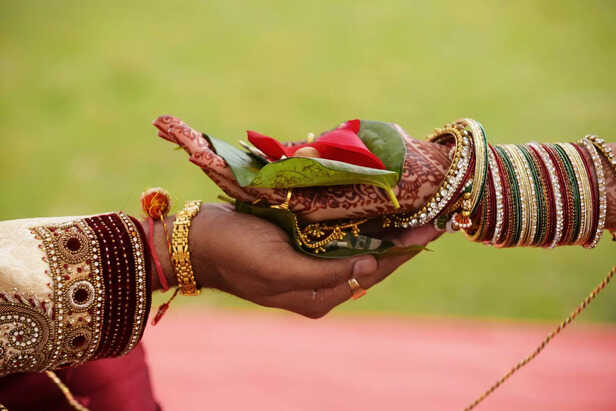
Even those skeptical of astrology often find comfort in rituals that bring structure to uncertain life decisions. Kundli matching provides a psychological safety net. It helps couples and families feel that they’ve done their due diligence. For young couples, especially in arranged marriages, Kundli matching adds a sense of legitimacy. It becomes a source of confidence, subtly validating their decision to move forward together.
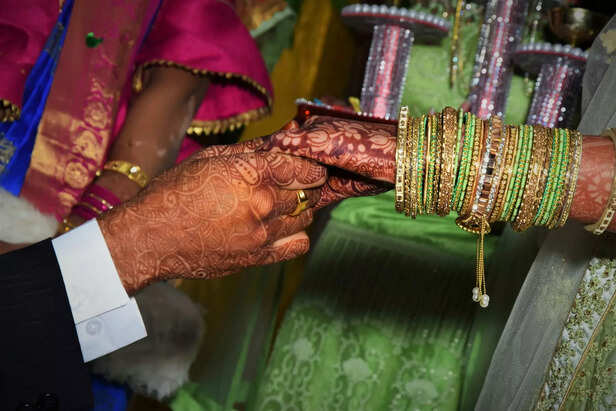
One of the key purposes of Kundli matching is to identify Doshas—flaws or imbalances—such as Mangal Dosha or Nadi Dosha, which are believed to bring challenges in marital life. Early identification allows couples to take preventive steps, often through spiritual remedies or rituals. While critics may view this as fear-based thinking, many believers see it as a proactive approach. Even in love marriages, it’s not uncommon for couples to quietly get their Kundlis matched for extra reassurance.
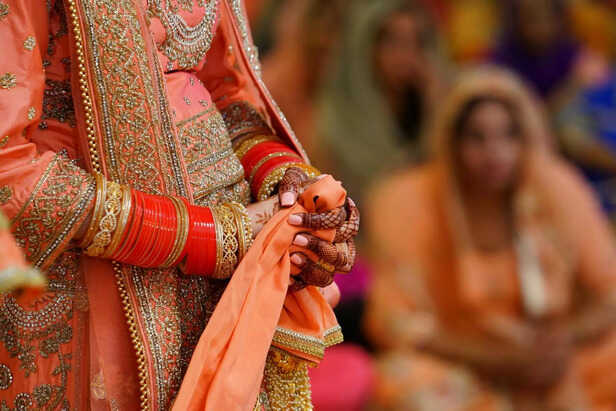
India’s spiritual traditions often tie personal destiny to planetary movements. Kundli matching, therefore, isn't merely a tradition; it's a symbolic attempt to align human choices with cosmic rhythm. Moreover, Kundli matching doesn’t just consider love and emotions—it assesses practical elements like health, finances, fertility, and family dynamics, all of which are critical for a sustainable relationship.
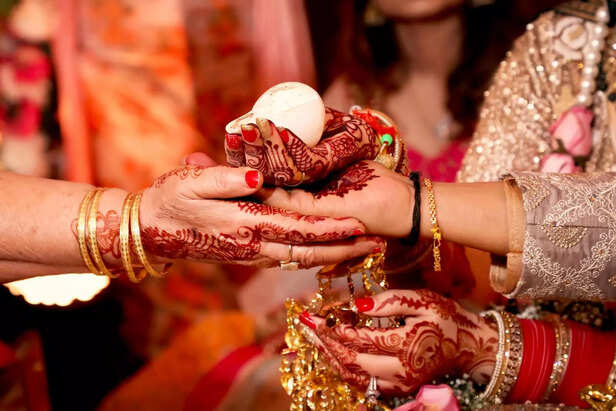
In an era dominated by dating apps and rising divorce rates, it might seem odd that young Indians still turn to ancient practices. But many Millennials and Gen Z individuals are doing exactly that—not out of blind faith, but out of curiosity, cultural respect, or a desire for emotional clarity. Astrology has seen a resurgence in global pop culture, and India is no exception. For many, Kundli matching is no longer a rigid rule but a tool for deeper insight. It blends modern love with timeless wisdom.
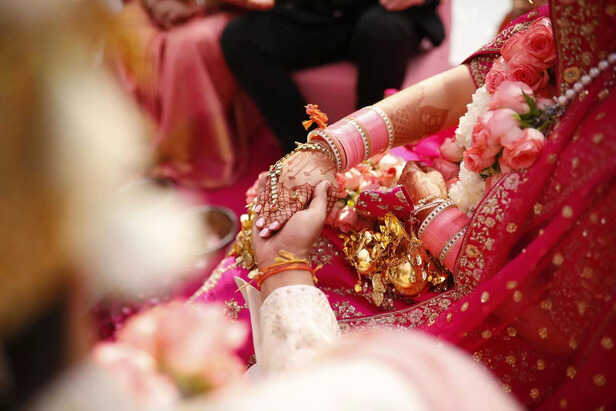
Contrary to the belief that Kundli matching strips away free will, it's increasingly seen as a guide rather than a command. Today’s astrologers and families adopt a more balanced approach—using Guna Milan scores as just one of several factors in decision-making. Even with a low compatibility score, many couples move ahead if emotional connection and trust are strong. In this way, astrology often opens a dialogue about compatibility rather than ending it.Cultural Continuity in a Changing WorldAs Indian society evolves, rituals like Kundli matching serve as anchors to heritage. For NRIs or cross-cultural couples, these practices offer a sense of identity and belonging. It also encourages shared cultural understanding, especially in arranged marriages where emotional familiarity may take time to build. In this way, Kundli matching often becomes a bridge between tradition and modernity.
Kundli matching is not a superstitious roadblock—it’s a cultural compass. Whether you view it symbolically or sincerely, it offers a structured approach to thinking about long-term compatibility. In arranged marriages, where time-tested tools are valued, this method helps lay the foundation for trust.In the end, love should always lead the way—but if the stars offer a guiding light, many Indian families are still willing to look up. And maybe that’s not such a bad thing after all.So, do Indians continue to check Kundlis before marriage? Yes—and they likely always will. Not because they doubt love, but because they want to give it every chance to thrive.
Unlock insightful tips and inspiration on personal growth, productivity, and well-being. Stay motivated and updated with the latest at My Life XP.
The Science of Synchronicity: What Is Kundli Matching?

Kundali plays a very important role in Indian marriages
( Image credit : Pexels )
A Kundli (or Janam Kundli) is a birth chart drawn from the date, time, and place of birth. It charts the positions of celestial bodies at the time of birth, which are believed to influence personality, life path, and compatibility. In the context of marriage, Kundli matching—traditionally called Guna Milan—is based on the Ashtakoota system. This system assigns a total of 36 points to assess compatibility across eight dimensions, including mental harmony, physical alignment, health, and longevity of the marriage. The closer a couple gets to the maximum score of 36, the higher their compatibility is deemed. While this framework may seem strict, many families treat it more as a guiding tool than a final verdict.
Marriages in India Are Still a Family Affair

Family still play a very important role in indian marriage
( Image credit : Pexels )
Marriage in Indian culture often extends beyond the bride and groom. It’s a binding of families, traditions, and expectations. Kundli matching is seen as a way to assess harmony between not just individuals, but households.Families turn to Kundli matching to minimize future conflicts, ensure peace, and seek alignment in values and temperaments. In many cases, it’s not just about spiritual signs—it's about emotional reassurance and cultural alignment.
Psychological Comfort and Emotional Security

people get a sense of emotional security
( Image credit : Pexels )
Even those skeptical of astrology often find comfort in rituals that bring structure to uncertain life decisions. Kundli matching provides a psychological safety net. It helps couples and families feel that they’ve done their due diligence. For young couples, especially in arranged marriages, Kundli matching adds a sense of legitimacy. It becomes a source of confidence, subtly validating their decision to move forward together.
Recognizing Red Flags—The Doshas

people often check kundlis to find out dosh
( Image credit : Unsplash )
One of the key purposes of Kundli matching is to identify Doshas—flaws or imbalances—such as Mangal Dosha or Nadi Dosha, which are believed to bring challenges in marital life. Early identification allows couples to take preventive steps, often through spiritual remedies or rituals. While critics may view this as fear-based thinking, many believers see it as a proactive approach. Even in love marriages, it’s not uncommon for couples to quietly get their Kundlis matched for extra reassurance.
Merging Spiritual Beliefs with Practical Concerns

it is also a belief that if kundali matches, things will be fine
( Image credit : Pexels )
India’s spiritual traditions often tie personal destiny to planetary movements. Kundli matching, therefore, isn't merely a tradition; it's a symbolic attempt to align human choices with cosmic rhythm. Moreover, Kundli matching doesn’t just consider love and emotions—it assesses practical elements like health, finances, fertility, and family dynamics, all of which are critical for a sustainable relationship.
Vedic Tradition Meets Modern Uncertainty

it is more about faith
( Image credit : Pexels )
In an era dominated by dating apps and rising divorce rates, it might seem odd that young Indians still turn to ancient practices. But many Millennials and Gen Z individuals are doing exactly that—not out of blind faith, but out of curiosity, cultural respect, or a desire for emotional clarity. Astrology has seen a resurgence in global pop culture, and India is no exception. For many, Kundli matching is no longer a rigid rule but a tool for deeper insight. It blends modern love with timeless wisdom.
It's About Compatibility, Not Control

people believe that matching kundli means better compatibility
( Image credit : Pexels )
Contrary to the belief that Kundli matching strips away free will, it's increasingly seen as a guide rather than a command. Today’s astrologers and families adopt a more balanced approach—using Guna Milan scores as just one of several factors in decision-making. Even with a low compatibility score, many couples move ahead if emotional connection and trust are strong. In this way, astrology often opens a dialogue about compatibility rather than ending it.Cultural Continuity in a Changing WorldAs Indian society evolves, rituals like Kundli matching serve as anchors to heritage. For NRIs or cross-cultural couples, these practices offer a sense of identity and belonging. It also encourages shared cultural understanding, especially in arranged marriages where emotional familiarity may take time to build. In this way, Kundli matching often becomes a bridge between tradition and modernity.
Conclusion: Faith, Not Fear
Unlock insightful tips and inspiration on personal growth, productivity, and well-being. Stay motivated and updated with the latest at My Life XP.
Frequently Asked Questions (FAQs)
- Why is Kundli matching still important in 2025?
It provides emotional reassurance, cultural continuity, and helps assess long-term compatibility in modern marriages. - Is Kundli matching only for arranged marriages?
No, even couples in love marriages often check Kundlis for additional clarity and peace of mind. - Can a couple marry if their Kundli doesn't match well?
Yes, many couples move forward despite low scores, focusing on trust, communication, and mutual understanding.








